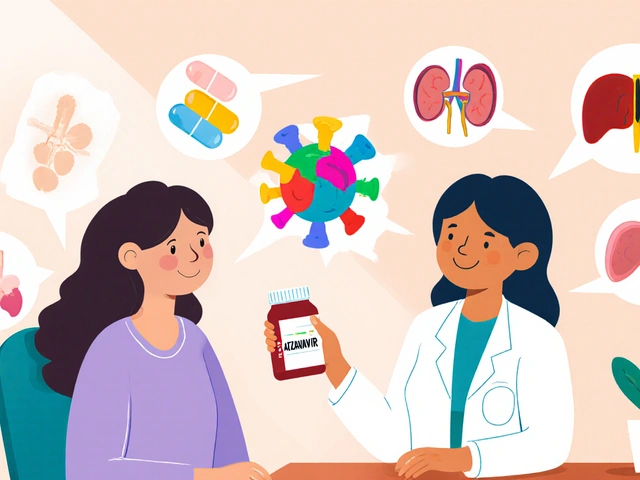Amiodarone: What It Does, Risks, and Practical Tips
Amiodarone is a powerful heart medication used to treat serious rhythm problems, especially atrial fibrillation and ventricular arrhythmias. It helps stabilize the heart's electrical system and can prevent life-threatening beats.
Because it's strong, doctors usually prescribe it when other drugs haven't worked or when the arrhythmia is dangerous. You might get it as a short hospital loading dose, or long term at a lower dose. Treatment plans vary, so follow your cardiologist's instructions.
Side effects & monitoring
Common side effects include tiredness, constipation, and sensitivity to sunlight. More serious issues can affect the lungs, thyroid, liver, and eyes. Lung inflammation or scarring (pulmonary toxicity) and thyroid problems are the top concerns; they can show up weeks to months after starting the drug.
Before you start amiodarone, your doctor should check baseline tests: chest X-ray or CT if needed, lung function, liver and thyroid blood tests, and eye exam. During treatment, expect regular blood tests and sometimes chest imaging to catch complications early.
Interactions & precautions
Amiodarone interacts with many medicines. It can raise blood levels of drugs like warfarin, digoxin, and some statins, increasing bleeding or toxicity risk. Stopping or starting amiodarone can change how other drugs behave, so always tell every provider you see that you take it.
Avoid grapefruit and grapefruit juice; they can increase amiodarone levels. Also be cautious with medications that affect the QT interval or slow the heart. If you notice dizziness, fainting, very slow pulse, or new shortness of breath, get medical help.
Pregnancy and breastfeeding are special cases. Amiodarone can harm an unborn baby and is usually avoided in pregnancy unless absolutely necessary. Discuss family planning if you are of childbearing age and your doctor suggests this drug.
If you take amiodarone long term, skin changes and blue-gray discoloration can appear in sun-exposed areas. Use sunscreen and cover up outdoors. Report any yellowing of the skin or eyes, worsening cough, or vision changes.
Practical tips: keep a current medicine list, schedule the lab checks your doctor orders, and ask about interactions when a new drug is prescribed. If you travel, bring a note that you take amiodarone and list emergency contacts.
Want to read more on our site? Search for articles on heart medicines, beta blockers, and monitoring tips. If you have specific questions about dosing, side effects, or alternatives, talk to your cardiologist — they know your case best.
How long does amiodarone take to work? That depends. A loading schedule in hospital can control rhythms within days, but full effects and steady drug levels may take weeks. That's why follow-up matters: your provider will adjust dose based on symptoms and test results, not just how you feel. Never change dose on your own. If side effects pile up or tests show trouble, your doctor may switch to a different antiarrhythmic or try catheter ablation. Ask about non-drug options if long-term use feels risky for you. Keep emergency contacts and an up-to-date allergy list with you. Carry a medication card with info.
In my recent deep-dive into medical research, I stumbled upon the intriguing relationship between Amiodarone, a popular heart medication, and liver toxicity. It appears that prolonged use of Amiodarone can lead to liver damage, given its tendency to accumulate in the organ. Some patients may even develop serious conditions like cirrhosis or acute liver injury. Therefore, regular liver function monitoring is crucial for those on this medication. It's a stark reminder of how vital it is to balance the benefits and risks of any medication we take.
View Details

